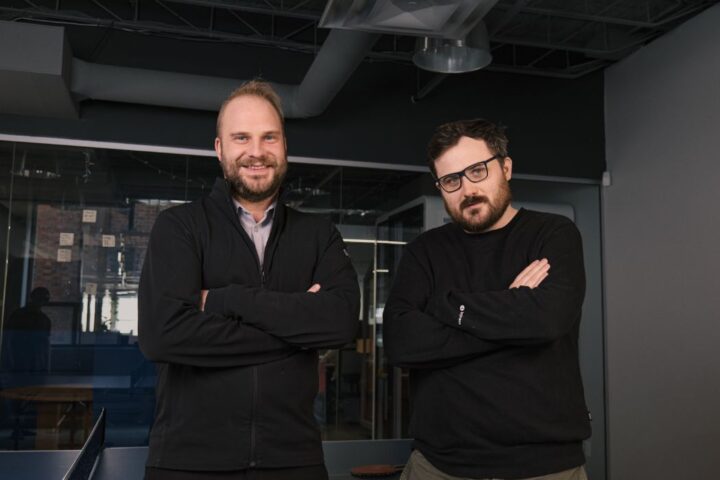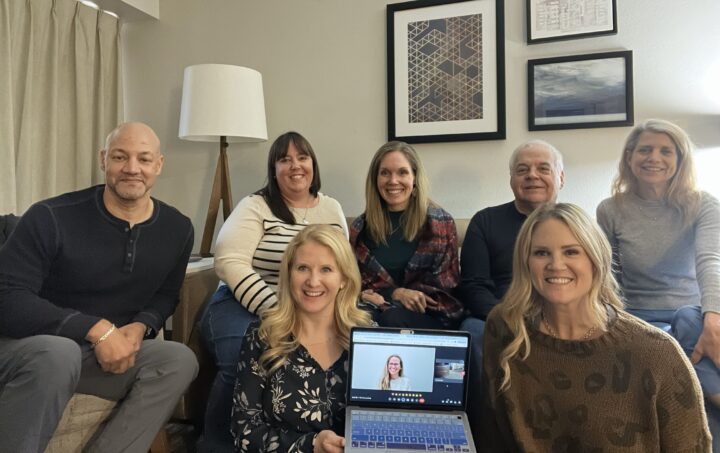An entrepreneur from Columbus, Ohio is using black soldier fly larvae to aid the US food waste crisis from the confines of his garage.
Larvio Bioconversions, founded in 2015 by Andrew Jones, is a startup that is taking a less than traditional approach to dealing with the mass amounts of food waste that are discarded every year by homes across the Midwest and the rest of the country.
In his garage, which has been sealed to stop any of the mature soldier flies from escaping, Jones has concocted a method for getting the flies to lay eggs, which will turn grow into grubs. After two weeks, these grubs grow into adults, breed, and the cycle restarts, in order cultivate compost.
While at the University of Virginia, Jones discovered his true passion lay in agriculture, the environment, and sustainability during his third year. This revelation caused him to turn his focus away from medical school. The following summer, Andrew interned at a permaculture and biodynamic farm in Accomac, Virginia.
From there, he only became more passionate about solving what he considered to be a real world problem. He compounded this with research that looked at the effectiveness of treating human waste with black soldier fly larvae in developing regions worldwide.
And so, here we are.
The US is reported to throw away eighty billion pounds of food each year, and, according to the EPA, 95% of the food thrown away ends up in landfills. Despite this, the majority of the country is unaware of the effects this has on the environment. A 2015 John Hopkins study states that less than 50% of Americans were clued in on the food waste problem.
There are, however, plans to curb this trend. A 2016 report by ReFED outlined the plan to reduce food waste in the US by 20%. Further to this, in 2015, an initiative was put forward to cut food waste in half by 2030.
In a state such as Ohio, which relies heavily on agriculture, Jones is looking to assist farmers by supplying some of the excess larvae as cattle, bovine, and fish feed.
Larvio Bioconversions are not the only company aiming to encourage composting as an alternative to simply dumping waste in landfills, such as the Franklin County Landfill in Ohio, which receives up to fifty-one garbage trucks worth of food waste – eggshells, rotten meat, spoiled produce – every day.
Rust Belt Riders is a composting company which uses twenty-five thousand pounds worth of food waste each week from universities, hospitals, and restaurants in Ohio and has began researching how to effectively implement black soldier fly larvae into its enterprises.
Additionally, EnviroFlight, based in Youngstown, is committed to using sustainable animal and plant nutrients using regionally available and low-value materials. They have been feeding scraps coming from big-food manufacturing centers to black soldier fly larvae, and processing the insects into fish food.
However, whilst this all comes across as a very environmentally-friendly, sustainable earth sort of solution, it is not just three companies who can solve the problems regarding food waste. The public needs to get on board, and to get on board, it has to understand.
An article by Sustainable America stated that 57% of Americans would, in fact, begin composting if it were more convenient. Often times people do not know exactly what belongs in the regular bin and what belongs in the recycling bin. On top of this, some people just don’t seem to care all that much. This can make it difficult for organizations such as Larvio Bioconversions and Rust Belt Riders to truly change the landscape of food waste management.
But, they shouldn’t let public ignorance dissuade them from continuing their endeavours for a more sustainable America. It is not expected that Jones’ and Rust Belt Riders’ ventures will solve the nation’s problems overnight. However, this is just now. With more research, more development of techniques, and more education, it could turn out that the black soldier fly method is the solution.
Speaking of these remedies, Mike Long, a sustainability consultant, and former executive director at the Solid Waste Authority of Central Ohio, said, “Over the last 25 years there has been technology that has advanced more than I expected in the outset. I would put this in that category.”
As for Andrew Jones, he is planning on relocating to Delaware County next month to a space that has a two-car garage, basement, and a shed to further expand his operation. And should everything go to plan, it will hopefully start providing effective solutions for a nationwide problem. It’s a dirty job, but someone has to do it.









